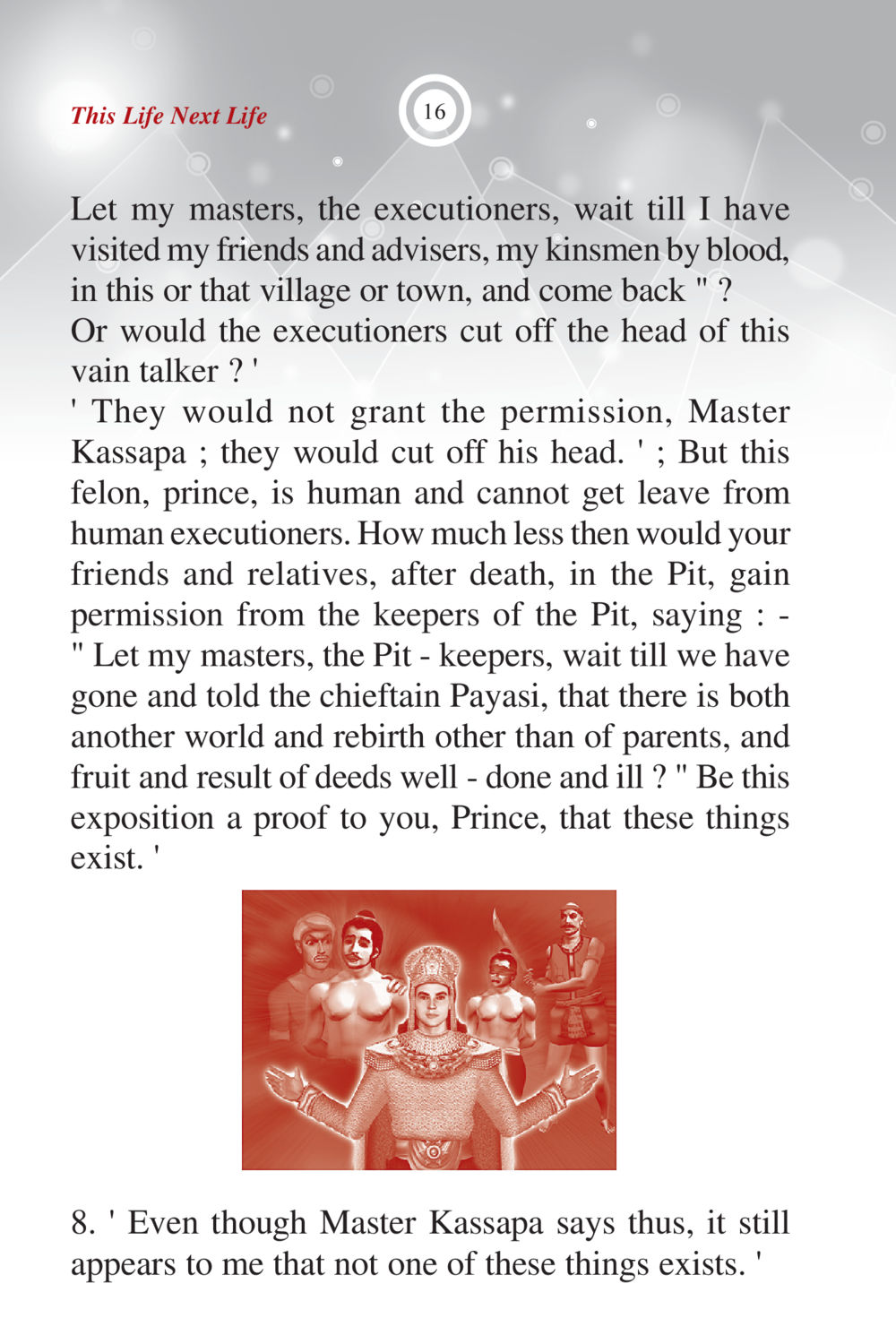The Consequences of Apathy Towards Death : หน้า 18/130
ภพนี้ ภพหน้า ฉบับเติมเต็ม : หน้า 18/130 An exploration of the consequences faced by those who ignore the realities of death and the afterlife, as revealed through a dialogue between a master and his executioners.
0 ครั้ง

สรุปเนื้อหา
This text delves into a philosophical discourse about the inevitability of death and the moral implications of one's actions. It contrasts the yearning for a reprieve from execution with the notion that in an afterlife, individuals cannot escape the consequences of their earthly deeds. The dialogue emphasizes that humans, even after death, have no control over their fate regarding the afterlife and judgment. It serves as a profound reminder of the importance of recognizing and acting upon the moral ramifications of one's choices while alive. The text urges reflection on the nature of existence, death, and the cycle of rebirth, questioning the belief in an afterlife and the understanding of moral deeds.
หัวข้อประเด็น
-The inevitability of death
-Moral actions and consequences
-The concept of rebirth
-The judgment after death
-Philosophical reflections on life and death


































































































































